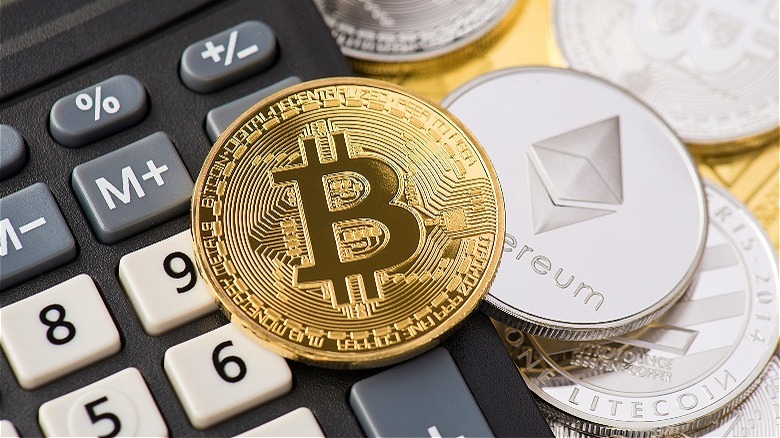How To Choose The Right Crypto Exchange
Cryptocurrency trading has continued to grow in popularity, and with the bitcoin halving that took place on April 20, 2024, more people are most likely to come across the asset class and marketplace. Trading in these digital currency assets resembles stock market participation in many ways, but it's a unique investment option that plays by its own set of rules. Crypto tokens themselves are exchanged much like in the foreign exchange market, but buying one asset isn't the same as taking a position in a currency pair. Instead, buyers purchase coins that are legitimate digital currency, making this more akin to trading U.S. dollars for euros or Swiss francs for British pounds with another person in the physical world. (On that note, will digital currency ever replace physical cash?)
Many mainstream platforms have brought cryptocurrency trading into their offerings; PayPal and Robinhood, to name a few. Others, like Coinbase, have made the jump from niche marketplace name to publicly traded company, bringing cryptocurrency into a much larger level of awareness by the general public. Plenty of reliable names can be found within the crypto world, so choosing a platform to use as your trading hub can be difficult. The first, and perhaps the most important, aspect in this selection revolves around availability. For American traders, some exchanges won't offer support as a result of licensing requirements. This is the first hurdle, but these five other aspects round out the bones of a quality crypto exchange and should be major priorities for any crypto hopefuls.
1. Fees, charges, markups, and other costs
Once you've established your prospective exchange picks do in fact offer accounts to United States customers, you'll next want to consider the outlays that come with trading on any exchange. Crypto trading platforms are business ventures, and they work to make money in one way or another — with profits coming directly from the interactions that clients engage in. This may take the form of a price spread on buy/sell orders (with a small markup over the market price of any asset you might take a position on), or it can exist as direct fees for trading, depositing funds, or withdrawing profits.
The fees and other charges that factor into your experience on any trading platform play an integral role in the financial sense that any investment makes. Minimizing the lost profits that are skimmed off the top to pay for transaction fees or spread charges is an important component of any successful trading strategy. Of course, fee structure isn't the only thing to consider, but it should rank highly among the things you consider when selecting a crypto exchange. The more you pay to trade, the less money you'll make with every order you execute. These subtractions to your bottom line add up over time and can ultimately make a huge difference in the cumulative success you see in the market.
2. The liquidity of an exchange
Liquidity is a feature in routine financial management in all trading, budgeting, and saving operations. Savings accounts with solid liquidity allow users to withdraw their funds with little to no wait time and no barriers like withdrawal fees. Liquidity is important in fiat currency management, and it's equally valuable in the cryptocurrency space.
In particular, it's important a crypto exchange exhibits quality liquidity metrics. What this means revolves around a few key points, and it translates into a few markers of stability and reliability for traders. Liquidity in a cryptocurrency context is measured primarily in the volume of buyers and sellers actively engaged in the platform's trading arena. However, exchange liquidity is also crucially important — i.e., an exchange's ability to facilitate large trades and involves the exchange's "cash" reserves of a variety of tokens.
Both forms of liquidity help stabilize the market and protect it against any wild price fluctuations resulting from major transactional movements, in part underpinning a cryptocurrency's value. As a rule of thumb, the larger the exchange, the better its liquidity will typically be. This is because large exchanges have often amassed significant war chests of reserve crypto assets. Further, their sizable pool of traders contribute, one, to the platform's continued financial growth, and, two, a healthy volume of active movement within the larger market.
3. The supported cryptocurrency assets
Traders hoping to take the crypto market by storm will often be seeking access to a range of unique cryptocurrency assets. As of March 2024, there are ~9,000 active cryptocurrencies in play, creating a truly luscious field of coins and tokens to consider. Many new investors will be seeking to dabble in well-known options like bitcoin and ether, while others might branch out into litecoin, monero, or ripple (perhaps even playing around in the dogecoin universe).
It's a good idea to consider the assets you might be interested in trading. Cryptocurrencies come in numerous flavors, and there's even a range of fan-based tokens that the avid crypto investor might want to get their hands on. For investors only focused on the mainstream crypto options, just about any exchange will get the job done. However, some people may want to try out wider channels, or seek the option to get in on new tokens as they launch.
Considering the library of cryptocurrencies that can be found on platforms you're thinking about using as your primary investment exchange can help make your decision a little clearer. Exchanges that offer numerous tokens or have a good track record of listing tokens quickly when they become live might fit best with your trading strategy. At the very least, an exchange with plenty of supported coins will allow you to explore the marketplace far and wide if the urge ever does factor into your crypto future.
4. Features like trading tools and analytical product inclusions
The research plug-ins, trading tools, and advanced features that an exchange offers can make a big difference in the experience you enjoy (or maybe come to resent) on any investment platform. Many cryptocurrency exchanges provide a library of learning resources to help make sense of the basics. But where an exchange goes from there can depart from the mean significantly, as some exchanges offer users a basic, standard, or light version of the platform, along with a pro variant. These different layouts can be a great help to those just getting started in cryptocurrency, as well as investors with plenty of experience in the market. Early-stage traders are likely seeking a user-friendly experience that isn't overwhelming and/or confusing. Basic pricing charts and simple indicators can make the transition into this world far more appealing.
On the other hand, advanced traders might be seeking a feature-rich environment, one that provides customizable analysis decks and a raft of indicators that can be consulted with to make second-by-second decisions on open positions and asset balances. Some investors may be interested in margin trading and cryptocurrency-lending activities. These kinds of features may be available to investors on some platforms but not others.
5. Transparency and accountability
Transparency and accountability form the backbone of any good trading partner you might consider to assist you in your investment journey. While all the characteristics discussed so far are important to seek out in a quality cryptocurrency exchange, a reliable exchange that will take your data security and financial protection seriously is truly paramount. There have been plenty of data breaches and fraudulent activity in the world of cryptocurrency trading. The FTX collapse, for example, is but one cautionary tale cryptocurrency that traders should never forget when shopping around for a trading platform to guide their activities.
FTX was perhaps infamously opaque with its financial disclosures and operational practices, that is, until the curtain came down on it. FTX fell victim to its founder's greed, but that vapidness was only exposed when the enormous retraction of bitcoin's value took place in 2021. While other exchanges also saw their outlook tumble, with a solid foundation and a lack of illegal monetary siphoning, they didn't founder under the weight of the market shock.
With this in mind, any trader looking to get into the cryptocurrency space will want to be sure that they're working on a platform that prides itself on transparency and accountability. Cryptocurrency itself is built on a community-focused base. The intent of blockchain assets, after all, is to create a communal, decentralized monetary alternative. Open-source code is a staple of the crypto industry, and exchanges that follow in this tradition are often ones that serve their users the best.





